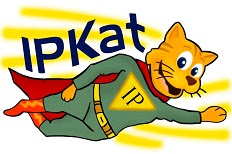The Brazilian President, Dilma Rousseff, has signed three agreements with the British Prime Minister, David Cameron. The agreements are to seek cooperation between the countries in areas of: science, technology and innovation. Specifically the Brazilian government web page identifies that the agreements will “provide for an increase in the number of students sent to the United Kingdom through the Science without Borders program”.
 In the meeting the Brazilian President noted the importance of these agreements to “improve the competitiveness of the Brazilian economy and, of course, the British economy”. David Cameron announced that through these agreements the UK will “facilitate opportunities for Brazilian scientists to benefit from world-class universities in the United Kingdom”.
In the meeting the Brazilian President noted the importance of these agreements to “improve the competitiveness of the Brazilian economy and, of course, the British economy”. David Cameron announced that through these agreements the UK will “facilitate opportunities for Brazilian scientists to benefit from world-class universities in the United Kingdom”.
It appears that cooperation agreements seem to be the new trend for Latin American countries. This week we posted cooperation agreements signed by Peru with three different countries. In August this year, INPI also signed an agreement with their counterpart in China; and there was other one this year, that between China and Chile. In 2011, INPI signed with the European Patent Office an agreement aiming to carry out joint activities on topics related to patents (EPO media release April 2012 but announced here in this blog in September 2011). Colombia and Spain also signed a cooperation agreement related to IP in 2011. In 2010, INPI also signed with the Korean Intellectual Property Office an agreement related to just green patents. And...I am sure I am missing many more...feel free to post them in the comments box.
Now.. you may question: what do science, technology and innovation have to do with IP? There is indeed the need of adequate protection for certain types of works and creations. Moreover, IP is very much connected with the commercial returns; licensing; keeping certain research or information from been disseminated; and the like. IP involves not only economic rewards but also moral rights as well as social development.
 In this regards, I do invite you to read a post in theIPKat blog written by blogmeister Jeremy named “The Truth, from Ruth: students want more IP teaching”. According to a survey run by the UK National Union of Students (NUS) and the Intellectual Property Awareness Network (IPAN) “Most students believe that the way they are taught about intellectual property (IP) does not equip them for their future careers”. Generally the survey shows that students recognise the importance of understanding IP for their future careers. It is vital therefore than scientists and the students and workers who are involve in innovation see that there exist a link between IP and their potential commercial success.
In this regards, I do invite you to read a post in theIPKat blog written by blogmeister Jeremy named “The Truth, from Ruth: students want more IP teaching”. According to a survey run by the UK National Union of Students (NUS) and the Intellectual Property Awareness Network (IPAN) “Most students believe that the way they are taught about intellectual property (IP) does not equip them for their future careers”. Generally the survey shows that students recognise the importance of understanding IP for their future careers. It is vital therefore than scientists and the students and workers who are involve in innovation see that there exist a link between IP and their potential commercial success. 











